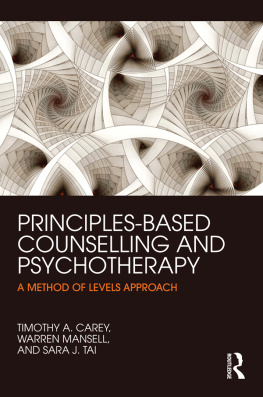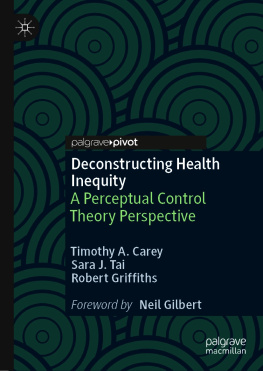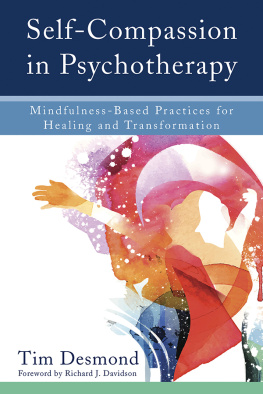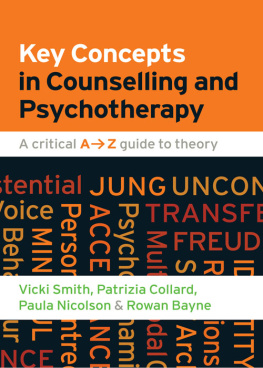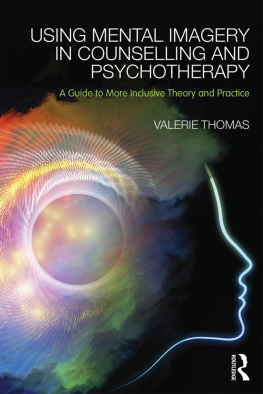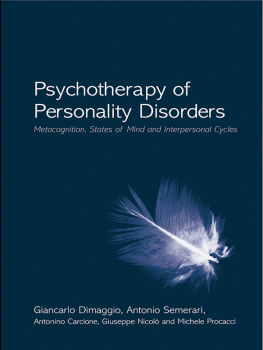Principles-Based Counselling and Psychotherapy
Many current approaches to the treatment of psychological problems focus on specific disorders and techniques that are purported to be effective and distinct. Recent advances in knowledge and theory, however, have called into question this approach. The conceptual framework of transdiagnostic, rather than disorder-specific, processes is gaining traction. Alongside this has been the call to focus on evidence-based principles rather than evidence-based practices and techniques. The rationale behind this is that many apparently unique and innovative practices are usually the reflection of common underlying principles. This book describes three founda -tional principles that are key to understanding both the rise and the resolution of psychological distress.
Principles-Based Counselling and Psychotherapy promotes a Method of Levels (MOL) approach to counselling and psychotherapy. Using clinical examples and vignettes to help practitioners implement a principles-based approach, this book describes three fundamental principles for effective therapeutic practice and their clinical implications. The first chapter of the book provides a rationale for the principles-based approach. The second chapter describes the three principles of control, conflict, and reorganisation, and how they relate to each other from within a robust theory of physical and psychological functioning. The remainder of the book covers important aspects of psychological treatment such as the therapeutic relationship, appointment scheduling, and the change process from the application of these three principles.
With important implications for all therapeutic approaches, Principles-Based Counselling and Psychotherapy will be an invaluable resource for psychothera pists, counsellors, and clinical psychologists in practice and training. It provides clarity about their role, and a means for providing a resolution to psychological distress and improving the effectiveness of their practice.
Timothy A. Carey is a Professor and Director of the Centre for Remote Health, a joint centre of Flinders University and Charles Darwin University, Alice Springs, Australia. Tim is a clinician, researcher, and teacher, and has authored over 100 publications. He has used MOL in clinical practice for more than 10 years, and has conducted MOL training in Australia, the United Kingdom, and Canada.
Warren Mansell is Reader in Clinical Psychology at the University of Manchester, UK, and the author of over 100 publications, including A Transdiagnostic CBT Using the Method of Levels Therapy: Distinctive Series (Routledge, 2012) with Tim Carey and Sara J. Tai. He has provided workshops on MOL therapy to health professionals in the UK, Europe, and Australia.
Sara J. Tai is a senior lecturer at the University of Manchester and practising Consultant Clinical Psychologist. She works internationally as a researcher, trainer, and supervisor of the MOL. She has published on psychological interventions for people with long-term mental health problems and is author of A Transdiagnostic CBT Using the Method of Levels Therapy: Distinctive Series (Routledge, 2012) with Warren Mansell and Tim Carey.
This new book from Carey, Mansell, and Tai is a refreshing reading. My enthusiasm with this new perspective is that central features of MOL approach are important bridges between several methods of therapy, from cognitive-behaviour, to constructivist and process-oriented, to experiential therapies. Therapists focus in understanding clients meaning-making processes, center in clients distress (not in their symptoms), emphasise the therapeutic relationship, conceive clients as experts into their own lives, and highlight the therapeutic power of each individual session. A must read for all psychotherapists, both experienced and trainees.
Miguel M. Gonalves , PhD, Professor, Director Psychology Research Center (CIPsi), Vice-President School of Psychology, University of Minho, Braga, Portugal
This book notes in its introduction that it hopes to intrigue, challenge and excite the reader. In a refreshing text, which slices therapeutic work in a novel direction by advocating a principles-based approach, it certainly achieved these goals for me.
Terry Hanley , Director of the Doctorate in Counselling Psychology at the University of Manchester, UK
Carey, Mansell, and Tai lay out a set of principles that will help you cut through the morass of conflicting therapeutic techniques and approaches and deliver more effective and consumer-friendly treatment.
Scott D. Miller , PhD, www.centerforclinicalexcellence.com. Chicago, Illinois, USA
This book offers a reader-friendly, example-packed account of the Method of Levels (MOL), an innovative therapy grounded in the principles of Perceptual Control Theory (PCT). PCT holds that people control their lives by acting to match their perceptions with their goals. MOL suggests that when clients goals conflict with each other, a path out of conflict is stepping up a level to view the conflicting goals from a broader perspective. The therapy is radically person-centered without being nondirective. It focuses on articulating clients goals and perceptions, facilitating but not imposing a productive reorganisation. A valuable book for clinicians seeking a fresh perspective.
William B. Stiles , Professor Emeritus, Miami University, Oxford, Ohio, USA
First published 2015
by Routledge
27 Church Road, Hove, East Sussex, BN3 2FA
and by Routledge
711 Third Avenue, New York, NY 10017
Routledge is an imprint of the Taylor & Francis Group, an informa business
2015 Timothy A. Carey, Warren Mansell, and Sara J. Tai
The right of the authors to be identified as author of this work has been asserted by them in accordance with sections 77 and 78 of the Copyright, Designs and Patents Act 1988.
All rights reserved. No part of this book may be reprinted or reproduced or utilised in any form or by any electronic, mechanical, or other means, now known or hereafter invented, including photocopying and recording, or in any information storage or retrieval system, without permission in writing from the publishers.
Trademark notice: Product or corporate names may be trademarks or registered trademarks, and are used only for identification and explanation without intent to infringe.
British Library Cataloguing in Publication Data
A catalogue record for this book is available from the British Library
Library of Congress Cataloging in Publication Data
Carey, Timothy A.
Principles-based counselling and psychotherapy: a method of levels
approach/Timothy A. Carey, Warren Mansell, and Sara J. Tai.
pages cm
Includes bibliographical references.
1. Psychotherapy. 2. Counseling psychology. I. Mansell, Warren.
II. Tai, Sara. III. Title.
RC480.C298 2015
616.8914 dc23
2014046348
ISBN: 978-0-415-73877-4 (hbk)
ISBN: 978-0-415-73878-1 (pbk)
ISBN: 978-1-315-69577-8 (ebk)
Typeset in Times New Roman
by Florence Production Ltd, Stoodleigh, Devon, UK
Contents
It is a tremendous privilege to be able to provide counselling and psychotherapy services to people experiencing psychological distress. We are continually humbled at the strength of the human spirit that people with psychological troubles demonstrate through their resilience and endurance. People place an enormous amount of trust in counsellors and psychotherapists when they bare their souls to them during programmes of psychological treatment. Sometimes, in only just a few minutes of meeting them, these people tell their counsellors or psychotherapists things that they have told no one else.

